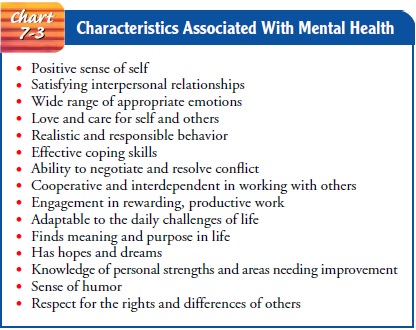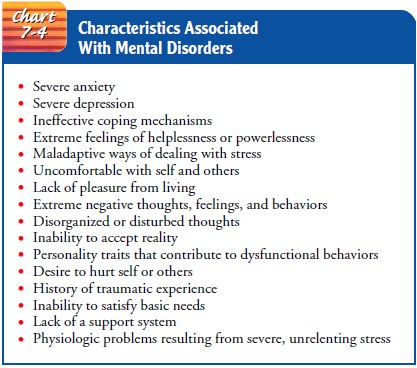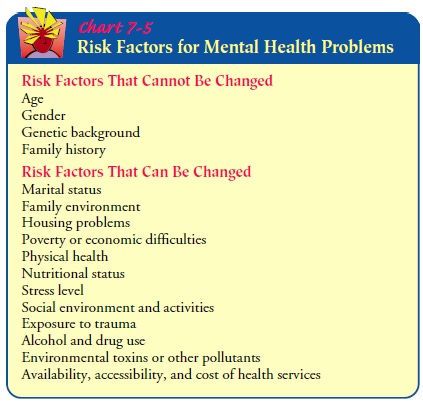Chapter: Medical Surgical Nursing: Individual and Family Considerations Related to Illness
Emotional Health and Emotional Distress
Emotional Health and Emotional Distress
The concept of emotional
health encompasses a person’s ability to function as comfortably and
productively as possible. Typi-cally, people who are mentally healthy are
satisfied with them-selves and their life situations. In the usual course of
living, emotionally healthy people focus on activities geared to meet their
needs and attempt to accomplish personal goals while con-currently managing
everyday challenges and problems. Often, people must work hard to balance their
feelings, thoughts, and behaviors to alleviate emotional distress, and much
energy is used to change, adapt, or manage the obstacles inherent in daily
living. A mentally healthy person accepts reality and has a positive sense of
self. Emotional health is also manifested by having moral and humanistic values
and beliefs, having satisfying interpersonal re-lationships, doing productive
work, and maintaining a realistic sense of hope (Chart 7-3).

When people have unmet
emotional needs or distress, they ex-perience an overall feeling of
unhappiness. As tension escalates, security and survival are threatened. How
different people re-spond to these troublesome situations reflects their level
of cop-ing and maturity. Emotionally healthy people endeavor to meet the
demands of distressing situations while still facing the typical issues that
emerge in their lives. The ways in which people re-spond to uncomfortable
stimuli reflect their exposure to various biologic, emotional, and
sociocultural experiences.
When stress interferes
with a person’s ability to function com-fortably and inhibits the effective
management of personal needs, that person is at risk for emotional problems.
The use of ineffective and unhealthy methods of coping is manifested by
dysfunctional behaviors, thoughts, and feelings. These behaviors are aimed at
relieving the overwhelming stress, even though they may cause further problems.
Coping ability is
strongly influenced by biologic or genetic fac-tors, physical and emotional
growth and development, family and childhood experiences, and learning.
Typically, a person reverts to the strategies observed early in life that were
used by family
As these destructive be-haviors
are repeated, a cyclic pattern becomes evident: impaired thinking, negative
feelings, and more dysfunctional actions that prevent the person from meeting
the demands of daily living (Chart 7-4).

No universally accepted
definition of what constitutes an emotional disorder exists. But many views and
theories share in common the idea that a number of variables can interfere with
emotional growth and development and impede successful adap-tation to the
environment. Most clinicians have adopted the state-ment from the American
Psychiatric Association’s Diagnostic andStatistical
Manual of Mental Disorders (DSM-IV TR), which de-fines the term mental disorder as a group of
behavioral or psycho-logical symptoms or a pattern that manifests itself in
significant distress, impaired functioning, or accentuated risk of enduring
se-vere suffering or possible death. Risk factors for mental health problems
are listed in Chart 7-5

Patients seen in
medical-surgical settings often struggle with psychosocial issues of anxiety,
depression, loss, and grief. Abuse, addiction, chemical dependency, body image
disturbances, and eating disorders are a few examples of health situations that
require extensive physical and emotional care to restore optimal func-tioning.
The dual challenge for the health team is to understand how the patient’s
emotions influence current physiologic condi-tions and to identify the best
care for the patient experiencing un-derlying emotional and spiritual distress.
Related Topics